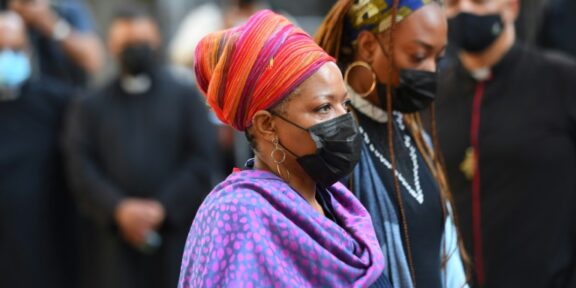A record 227 people were killed worldwide in 2020 for their defense of nature — more than four a week on average, and almost three-quarters of them in Latin America, environmental rights organization Global Witness said Sunday.
For the second year in a row, Colombia was the country with the highest number of killings — 65 — while Nicaragua had the highest per-capita rate, with 12 murders up from five in 2019, the group said in its annual report.
Seven of the 10 deadliest countries for land and environmental defenders were in Latin America, with 165 killings recorded, though Global Witness said the number was “almost certainly” an underestimate.
After Colombia, Mexico had the second highest number of deaths globally, with 30.
It was followed by the Philippines (29), Brazil (20), Honduras (17), the Democratic Republic of Congo (15), Guatemala (13), Nicaragua (12), Peru (six) and India (four).
“This is a crisis against humanity,” said the report.
“Land and environmental defenders that have stood up to powerful interests have paid a heavy price — with their freedom, livelihoods and even their lives.”
Repressive governments, added Global Witness, used the global coronavirus outbreak “as an opportunity to clamp down on civil society as companies pushed ahead with destructive projects.”
Many activists and communities also experience attempts to silence them through death threats, surveillance, sexual violence or arrests, said the report.
The majority of victims — 71 percent — had been working to protect forests, while others died for their work to conserve rivers, coastal areas and the oceans.
– ‘Extractive economic model’ –
A third of fatal attacks targeted indigenous peoples, who make up only five percent of the world’s population.
“We are indigenous… we know that only the environment can sustain us,” Celia Umenza, who agitates against mining and sugarcane farming in the violent southwest of Colombia, told AFP.
She has survived three attacks.
In Mexico, where lethal attacks increased 67 percent from 2019, the Kumeyaay people have organized against a brewing company they accuse of hoarding drinking water. One of their leaders, Oscar Eyraud, was assassinated last year.
“It was very shocking. A group of people came to his house and killed him with big guns,” a friend, Diana Aranguren, told AFP, adding there has been “no progress” in the investigation.
The report blamed corporations that it said operated “with almost complete impunity” in countries rich in natural resources.
“It’s clear that many companies engage in an extractive economic model that overwhelmingly prioritizes profit over human and environmental harm,” said the report.
Global Witness said 23 people worldwide were killed in 2020 for their activism against logging — the biggest single category — 20 in disputes over water and dams and 17 each for challenging the agribusiness and mining sectors.
– ‘Impunity’ –
“Businesses have profited from human rights abuses and environmental damage with relative impunity for far too long,” said the report.
It also criticized governments for being “all too willing to turn a blind eye.”
“They (governments) are failing to protect defenders — in many cases directly perpetrating violence against them, and in others arguably complicit with business.”
Global Witness has been collecting data on these types of attacks since 2012.
Among its recommendations, it said the United Nations should “fill a glaring gap” by formally recognizing the human right to a safe, healthy and sustainable environment.
Global Witness said the data in its report did not capture the true scale of the problem, given press restrictions or a lack of independent monitoring of attacks in some countries.
jss-mlr/st/sw








